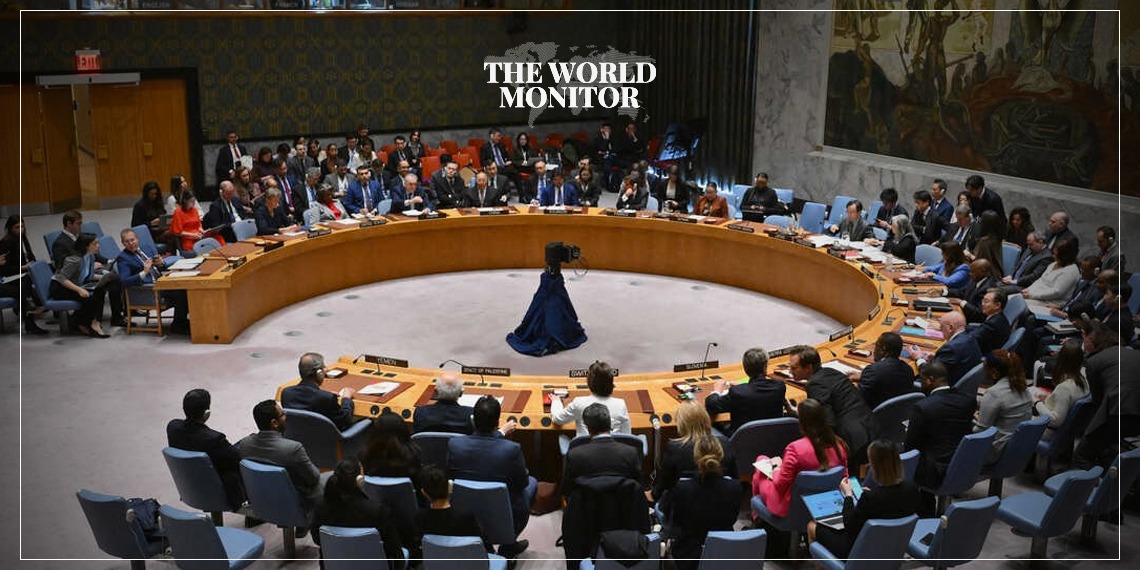The Permanent Representative of the League of Arab States to the United Nations, Ambassador Majid Abdel Fattah, stated that the issuance of a Security Council resolution calling for a ceasefire in Gaza marks a real starting point for the role of the United Nations in reaching this resolution. He clarified that Washington had been against any resolution that would call for such a ceasefire, and had requested wording on humanitarian truces to facilitate negotiations taking place outside the United Nations to reach an agreement to be brought to the United Nations for approval.
In his statements to the press, Abdel Fattah explained that Washington somewhat shares Israel’s assertion during those days that the United Nations is biased against Israel. He pointed out that Washington does not want to leave the Security Council or the United Nations the opportunity to make binding decisions for Israel; otherwise, it would be obligated to comply with those decisions, or else it would be in violation of the rules of international legitimacy and subject to punishment either through Chapter VII of the United Nations or through the International Court of Justice or the International Criminal Court.
Abdel Fattah expressed his belief that the United States’ agreement to allow this resolution to pass includes a positive signal, indicating that we are approaching an agreement in the negotiations sponsored by Egypt and Qatar outside the United Nations.
There is a correlation between what happens in the United Nations and beyond, and we should not deviate from that. The decision to stop the fire is binding on Israel under the provisions of Article 25 of the United Nations Charter, which stipulates that Security Council decisions are binding, and all member states are committed to implementing them.
He added that if there is non-compliance, in the second stage, recourse can be made to Chapter VII of the Charter and expedited measures can be taken to enforce compliance on the state that refuses to comply. He pointed out that Chapter VII entails imposing sanctions, and there is a real trend to impose those sanctions in case of non-compliance.
Ambassador Majid Abdel Fattah emphasized that the Council’s decision in this regard is clear, as the resolution did not use the word “urges” but rather used the word “demands,” which is the strongest word possible to be used in a resolution under Chapter VI of the United Nations Charter. He explained that the resolution stated that “the Security Council demands an immediate cessation of hostilities throughout the month of Ramadan, to be followed by an immediate, sustainable ceasefire and prisoner exchange, and humane treatment of prisoners, and the entry of humanitarian aid to the Palestinians.”
He confirmed that the resolution replaces the American resolution against which the Arab Group in New York stood, because it included many too many concessions, especially regarding the condemnation of Hamas, noting that the condemnation of Hamas is a red line for the Arab Group because it is a Palestinian resistance organization against the occupation state and is not a terrorist organization like Boko Haram, as the Israeli ambassador tried to prove.
He pointed out that Hamas is a popular resistance movement against the occupation, and if Israel believes that it is possible to eliminate Palestinian resistance to the occupation, it is delusional, stressing that “if Hamas is not present, 10 other organizations will emerge to resist the Israeli occupation until the implementation of the two-state solution.”
The Permanent Representative of the League of Arab States to the United Nations, Ambassador Majid Abdel Fattah, confirmed that Egypt’s comments on the resolution are in place, explaining that the Egyptian perspective on this matter comes from previous negotiations with the United States on Resolution 2720.
He said that the United States negotiated with Egypt and the United Arab Emirates last November on the same subject, noting that after agreements were reached with the US Ambassador in New York, voices from Washington, the National Security Council, and the President’s National Security Advisor emerged, demanding radical amendments that changed the course of Resolution 2720.
Ambassador Majid Abdel Fattah added that those changes allowed the United States to present misleading interpretations of this resolution in the draft resolution that received Russian and Chinese vetoes about 7-10 days ago, explaining that Egypt is very cautious about negotiating with the United States because Washington mostly uses phrases and signals that have another meaning, and work is underway to achieve it in later stages.






